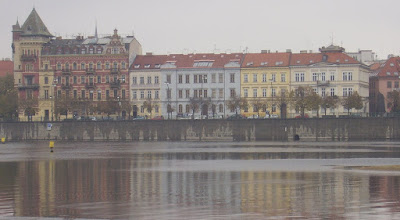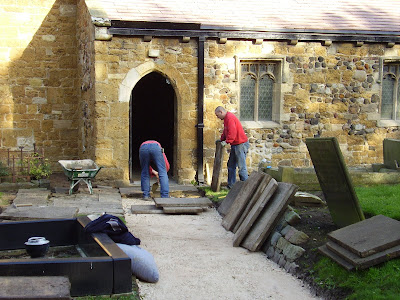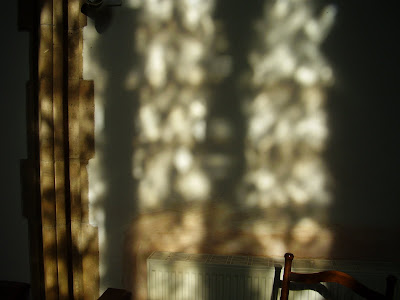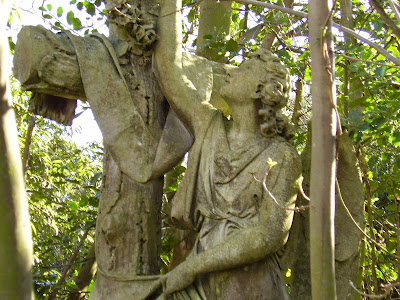
Doing this job is a bit like trying to direct a pantomime. Thirteen years ago I was hawking round for fellow clergy an article from the journal
Theology which used this image. Each new pantomime grows out of a specific shared tradition which is made new that once. The director has a role equal to the actors in enabling both the rootedness in the tradition and the creativity needed for them to pull this off.
I also hawked around an article from the same journal published eighteen month earlier which suggested the job was like being a midwife. The image is of someone with training and expertise who is alongside those bringing forth new life - being responsible for the environment in which birth happens but not taking credit for God’s creation itself.
At exactly the same time the then Bishop of Grantham gave me and others the images of ‘jobbing theologians and popular hermits’ in the hope that we would recognise that there is something about our talking and praying which are the distinctive things to which people might look to us as general practitioners even if not as expert specialists.
This week I’ve just read properly a new paper by the present Bishop of Grimsby in which he offers ideas about developing models of ministry which will be sustainable and worthwhile for incumbents in parishes in the future. I could hardly believe the coincidence of the four images he uses: the impresario, the catalyst, the community theologian and the missioner.
The images of the impresario is a slightly different take on the image of the director of the pantomime. We can’t go on running the show, but we can take every opportunity to make sure an attractive variety of shows go on.
The images of the catalyst (which I used in my Michaelmas post on 30th September) and the midwife are getting at very similar things. The extra thing present (an element or a person) is not changed by what goes on (the reaction and the birth) but has a distinctive role in facilitating what is waiting to happen (bringing it about and ensuring it happens safely).
The image of the community theologian or jobbing theologian is one image. You hope your plumber has kept up with the technology in your system and doesn’t drive a nail through a gas pipe, and you hope your incumbent can make the right connections without doing inadvertent damage to near by explosive parts of your life or the life of your church.
There isn’t an exact match between the images of the popular hermit and the missioner. One is paying attention to God in secret and others happen to notice this, use this and value this. The other is seeking ways in which to make the secret known.
The point thirteen years ago and now is that we shouldn’t ever have felt we were meant to be running parishes. We are mad going on trying to do so in places where the responsibility is for more and more parishes. And the sort of oversight to which incumbents are now called is close to what our priesthood should always have been anyway.
Meanwhile, the picture is of work continuing last week on disabled access at St Michael’s, Little Coates (which, ironically, is a project into which I've put a huge amount of time - and last night a Churchwarden told me we may have to tackle major roof repairs at St George’s, Bradley).

 The work to create disabled access at the entrance to the churchyard at St Michael's, Little Coates was both completed and vandalised while we were away for four nights, but I'm trying to admire the work (including the rather fine reinstatement of the lantern above the entrance) rather than knock my head against the damaged wall.
The work to create disabled access at the entrance to the churchyard at St Michael's, Little Coates was both completed and vandalised while we were away for four nights, but I'm trying to admire the work (including the rather fine reinstatement of the lantern above the entrance) rather than knock my head against the damaged wall.














